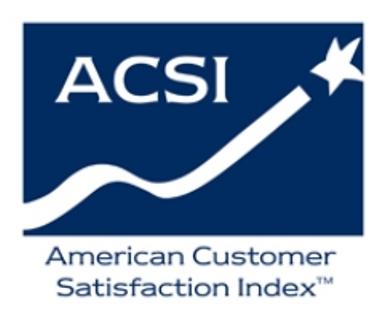Cable, ISPs Fall in ACSI Survey
The smarter way to stay on top of the multichannel video marketplace. Sign up below.
You are now subscribed
Your newsletter sign-up was successful

Cable operators and Internet Service Providers continued to sink to the bottom in the American Customer Satisfaction Index, while two recent telecom companies in the news – DirecTV and AT&T – tied for first place in the survey culled from interviews with more than 70,000 customer nationwide.
AT&T announced Sunday its agreement to acquire DirecTV in a cash and stock deal worth $48.5 billion, making the combined company the second largest pay television service provider in the nation with 26 million video customers. The news comes just months after Comcast announced it would acquire Time Warner cable, creating the largest pay TV company in the country with 30 million customers.
Despite actually declining slightly from the prior year DirecTV (-4%) and AT&T (-3%) finished with an ACSI score of 69 out of a scale of 100, edging out Verizon Communications (68) and Dish Network (67). Despite their decline, DirecTV and AT&T finished well ahead of the closest cable operator – Cox Communications, which ended the year with an ACSI score of 63, down about 3%. Comcast and TWC brought up the rear, with Comcast down 5% to 60 and TWC down 7% with a score of 56, its lowest ever. Subscription TV in general fared poorly – with a cumulative ASCI score of 65, down 4.4% from the previous year.
“Comcast and Time Warner assert their proposed merger will not reduce competition because there is little overlap in their service territories,” said ACSI Director David VanAmburg in a statement. “Still, it’s a concern whenever two poor-performing service providers combine operations. ACSI data consistently show that mergers in service industries usually result in lower customer satisfaction, at least in the short term. It’s hard to see how combining two negatives will be a positive for consumers.”
High prices, poor reliability, and declining customer service are to blame for low customer satisfaction with pay TV services, according to ACSI. The cost of subscription TV has been rising 6% per year on average—four times the rate of inflation. But with over-the-top video services like Netflix, Hulu and Amazon Prime, customers have more choice than ever.
ISPs, which include many of the same companies, fared even worse, ending the year with an ACSI score of 63, down 3.1% from the prior year.
“The Internet has been a disruptor for many industries, and subscription TV and ISPs are no exception,” said ACSI chairman and founder Claes Fornell in a statement. “Over-the-top video services, like Netflix and Hulu, threaten subscription TV providers and also put pressure on ISP network infrastructure. Customers question the value proposition of both, as consumers pay for more than they need in terms of subscription TV and get less than they want in terms of Internet speeds and reliability.”
The smarter way to stay on top of the multichannel video marketplace. Sign up below.
Verizon’s FiOS Internet service continued to lead the category with a score of 71, surpassing AT&T, CenturyLink and the aggregate of other smaller broadband providers, all at 65. Cable-company-controlled ISPs languished at the bottom of the rankings again. Cox fared best – and stayed above the industry average despite a 6% decline to a score of 64. Customers rate Comcast (-8% to 57) and Time Warner Cable (-14% to 54) even lower for Internet service than for their TV service. In both industries, the two providers have the weakest customer satisfaction.
The American Customer Satisfaction Index (ACSI) is a national economic indicator of customer evaluations of the quality of products and services available to household consumers in the United States. The ACSI uses data from interviews with roughly 70,000 customers annually as inputs to an econometric model for analyzing customer satisfaction with more than 230 companies in 43 industries and 10 economic sectors, as well as over 100 services, programs, and websites of federal government agencies.
